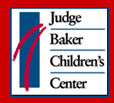 |
 |
 |
 |
 |
 |
 |
|
|
Three of our studies conducted by Harvard Medical School Faculty examine our research questions about the relations of child language development and child mental health. We study child emotional/behavioral adaptation with complex, multivariate approaches. These approaches encompass child, family, sociocultural and school factors, and psychopathology. We are also interested in potential protective factors. Elucidating these crucial areas of resilience and vulnerability will help guide future research on mechanisms linking language development and adaptations/psychopathology, in this way shaping design of new empirically-based treatments and preventive interventions for children at risk.
Current studies (ongoing analysis and manuscript preparation for submission):
- Study: Linguistic Risk Factors for Psychopathology and Poor Adaptation in Dual Language Latino Children
A longitudinal study of 228 bilingual Latino children and their families recruited in kindergarten from the Boston Public Schools, and followed two years later with an 80% retention. The study was funded by a 5-year NIMH grant. Data already collected focuses on psychological adaptations and childhood psychopathology as predicted by initial language competence and language demand in bilingual children. The study takes a comprehensive, multivariate approach to the study of child, family, sociocultural and school factors, psychopathology, and potentially relevant protective factors.
Focus:Dual language development and language demands as predictors of psychosocial adaptation and psychopathology (psychiatric symptoms; specific DSM-IV diagnoses). A closely related goal is to identify protective factors ameliorating the impact of these two sets of linguistic predictors for those dual language children at risk for poor outcomes related to language competence and/or language demands.
- Study: Language Proficiency in Bilingual Children: Emotional & Behavioral Correlates
Conducted at The Cambridge Hospital, this study was funded by the Carnegie Foundation through a Children's Studies at Harvard grant, and by NIMH. It investigated language competence, emotional/behavioral problems, and related variables in a sample of 50 bilingual children consecutively referred for outpatient psychiatric services and in close to 50 bilingual controls from a well-child clinic in pediatrics, both at a community health center. Research questions focused on the prevalence of language deficits and disorders, and the relations between dual language proficiencies and psychopathology.
Focus: Dual language abilities and associations with behavioral and emotional problems. Results are partially published (see publications) and in preparation for publication—currently analyzing data and writing for publication.
- Study in Norway: Does Center Based Child Care Improve Language Development and Mental Health in Disadvantaged Children?
A research collaboration funded by the Norwegian Research Council, brings together scientists from the Norwegian Institute of Public Health, The Norwegian Center for Child Behavioral Development, and the Lynch School of Education at Boston College to study the impact on young children of a generous new child care policy in Norway.
Focus: Primum non nocere, we first focused on investigating whether hours spent in child care made available through this new policy, resulted in undesirable effects on children’s behavior (see “Major Study” below). Upcoming analyses and publications focus on the advantages on language development and mental health for disadvantaged children of increased use of high quality child care made affordable by these policies. Data for this study is provided by the Norwegian Mother and Child Cohort Study, a large longitudinal dataset that includes 108,000 mothers and their children, including 8,000 sibling pairs, followed over the years since pregnancy.
For more information:Does Center Based Child Care Improve Development in Disadvantaged Children?
A new major study has emerged from this collaboration, with its results featured on the New York Times, Science Daily, and Aftenposten in Norway, among other major media outlets. For more information:
New Major Study Challenges Connection Between Child Care and Behavioral Issues
Past studies:- Study: Developmental Psychopathology and Child Language Development(concluded; funded by an NIMH-supplemental grant)
A pilot study of monolingual children, part of a multi-generational longitudinal study of families spanning more than 25 years.
Focus: Language competence, attachment and child psychopathology.
|
|
|




